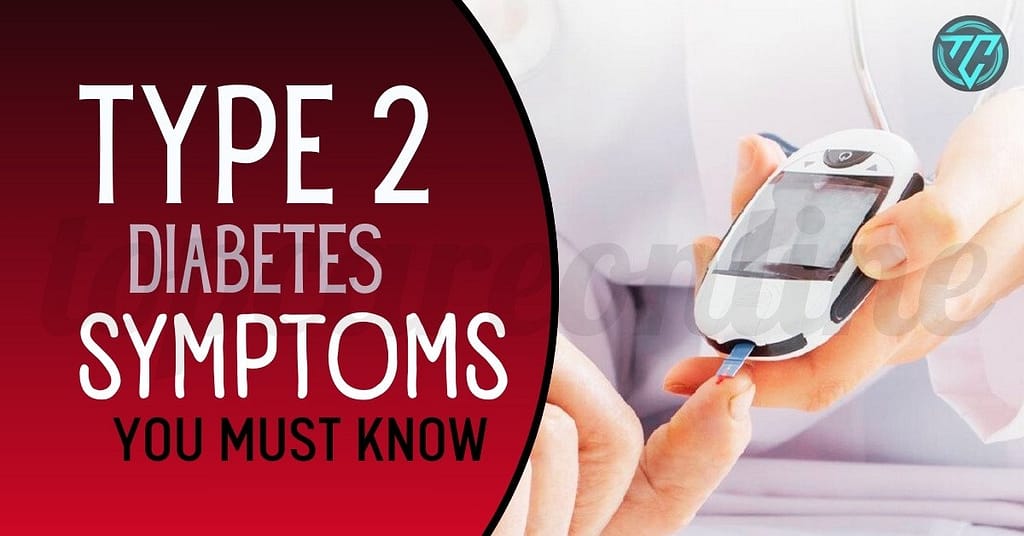Symptoms | Must Know | Blurred Vision | Retinopathy
Do you know why does diabetes cause blurred vision? Diabetes Blurry vision is a common concern among people with diabetes, yet many are unaware of the connection between the two. Understanding how it affects your vision is crucial.
Is Blurred Vision a Sign of Diabetes?
Why blurred vision in diabetes? Yes, blurred vision can be an early indicator of diabetes, especially in those who are undiagnosed. If you have prediabetes or are at risk of type 2 diabetes, experiencing vision changes might be one of the first noticeable symptoms. In such cases, it’s important to seek medical advice to get a proper diagnosis and start treatment early.
Symptoms of Diabetes Blurred Vision
Blurry vision in individuals with diabetes can arise from several issues related to the condition. Here’s a detailed look at the symptoms and underlying conditions that can cause blurred vision in diabetes:
Common Symptoms of Blurry Vision
- Blurred or Distorted Vision: A common symptom where objects may appear fuzzy or out of focus. This can be intermittent or persistent, often related to fluctuations in blood sugar levels.
- Fluctuating Vision: Vision might change throughout the day or over days, often correlating with changes in blood glucose levels. For example, vision might be clearer after blood sugar levels stabilize.
- Difficulty Seeing at Night: Reduced vision in low-light conditions can be a sign of diabetic retinopathy or other eye issues.
- Dark or Empty Spots: You might notice dark spots or areas where vision is missing, which can be indicative of more severe conditions like diabetic retinopathy.
- Double Vision: Although less common, some individuals with diabetes might experience double vision, particularly if blood sugar levels are poorly controlled.
- Diabetes Blurry Vision in One Eye: You might experience blurry vision in just one eye, which can be alarming but is often related to blood sugar fluctuations or eye strain.
- Foggy Vision Diabetes: A more diffuse, clouded vision can also occur, particularly if the lens swells or fluid builds up behind the retina.
- Blurry Vision at Night Diabetes: Difficulty seeing clearly in low light or at night can be a sign that your diabetes is affecting your vision.
Underlying Symptoms Associated with Diabetes
- Diabetic Retinopathy:
- Early Symptoms: May include mild blurry vision and difficulty seeing clearly.
- Progression: As the condition advances, it can lead to more severe vision problems, including dark spots or vision loss.
- Diabetic Macular Edema (DME):
- Symptoms: Swelling in the macula (the central part of the retina) can cause blurry or distorted vision, particularly in the central field of vision.
- Cataracts:
- Symptoms: Clouding of the eye’s lens can cause blurry vision, glare, and difficulty seeing in low-light conditions. Diabetes increases the risk of developing cataracts.
- Glaucoma:
- Symptoms: Increased intraocular pressure can damage the optic nerve, leading to blurred vision, tunnel vision, and sometimes headache or eye pain.
- Changes in Lens Shape:
- Symptoms: Fluctuating blood sugar levels can temporarily alter the shape and thickness of the lens, leading to transient blurry vision.
Must Know About Diabetes Blurry Vision
Diabetes Blurry Vision How Long Does It Last?
The duration of blurry vision depends on blood sugar levels. If you’re experiencing blurred vision after a spike in blood sugar, it may clear up once your levels return to normal. However, chronic high blood sugar can lead to long-term damage, such as diabetic retinopathy, which might require medical intervention.
Why Does Diabetes Cause Blurred Vision?
Diabetes impacts the body in various ways, and vision is no exception. High blood sugar levels can lead to fluid changes in the lens of your eye, causing it to swell. This swelling affects the eye’s ability to focus, leading to blurry eyesight with diabetes. This can happen in both type 1 and type 2 diabetes, and the vision changes can be temporary or prolonged depending on how well blood sugar levels are managed.
What Does Diabetes Blurred Vision Look Like?
Diabetes blurred vision can vary:
- High Blood Sugar Blurry Vision: Does high blood sugar cause blurry vision? High blood sugar can lead to blurry vision by affecting the lens’s ability to focus due to changes in fluid levels in the eye. This temporary blurriness often resolves when blood sugar levels normalize. However, consistently high blood sugar can result in more serious eye issues, such as diabetic retinopathy, which damages the retina’s blood vessels and can lead to long-term vision problems.
- diabetes blurry vision low blood sugar: Hypoglycemia, or low blood sugar, can also cause blurred vision. This happens because the brain and eyes rely on glucose for energy. When levels drop too low, it can lead to temporary vision disturbances. If you frequently experience blurry vision when your blood sugar is low, it’s a sign that your diabetes management plan needs adjustment.
What Causes Blurry Vision After Eating?
Blurry vision after eating is often a sign of high blood sugar, especially after consuming a carbohydrate-rich meal. This type of vision change usually resolves as your body processes the glucose.
Why is my vision blurry in the morning?
Blurry vision in the morning can be particularly concerning for individuals with diabetes. Here are some diabetes-related reasons that might explain morning blurriness:
- Blood Sugar Fluctuations: Diabetes can cause fluctuations in blood sugar levels, which can affect the shape and flexibility of the lens in your eye. This can lead to temporary changes in vision, especially noticeable in the morning.
- Diabetic Retinopathy: This is a condition where high blood sugar levels damage the blood vessels in the retina. While it typically causes gradual vision changes, morning blurriness might be more pronounced if there’s been recent fluctuation in blood sugar levels.
- Fluid Retention: High blood sugar levels can lead to fluid retention in the body, including the eyes. This can cause the lens to swell and affect your vision, particularly noticeable when you wake up.
- Keratoconus: Diabetes can sometimes lead to changes in the cornea, potentially causing a condition like keratoconus, where the cornea becomes thinner and more cone-shaped, affecting vision.
- Medication Side Effects: Some medications used to manage diabetes or other related conditions might have side effects that impact vision, including blurry vision upon waking.
Maintaining stable blood sugar levels and managing your diabetes effectively can help reduce these issues. However, it’s essential to consult with an eye specialist or your healthcare provider to assess any potential diabetic eye complications and receive appropriate guidance.
How to fix blurry vision during pregnancy?
Pregnancy can complicate diabetes and lead to blurry vision due to hormonal changes. It’s important for pregnant women with diabetes to monitor their blood sugar levels closely and report any vision changes to their healthcare provider.
Diabetes and Blurred Vision
In both types of diabetes, managing blood sugar levels and having routine eye exams are crucial for preventing and addressing vision problems.
Type 1 Diabetes Blurry Vision
Blurry vision in individuals with type 1 diabetes can occur due to high blood sugar levels affecting the eye’s lens. When blood sugar levels fluctuate, the lens may swell or change shape, causing temporary blurred vision. Over time, consistently high blood sugar can lead to diabetic retinopathy, a condition where damage to the blood vessels in the retina causes vision problems.
Type 2 Diabetes Blurry Vision
Blurry vision in people with type 2 diabetes often results from fluctuating blood sugar levels that affect the lens of the eye, causing temporary vision blurriness. Over time, unmanaged high blood sugar can lead to diabetic retinopathy, where damage to the retina’s blood vessels causes more serious vision problems.
Prediabetes Blurry Vision
Prediabetes is a precursor to type 2 diabetes and can also cause blurred vision. Early intervention is crucial in this stage to prevent the progression to full-blown diabetes.
Diabetic Retinopathy Blurred Vision
Diabetic retinopathy is a condition caused by damage to the blood vessels in the retina due to high blood sugar levels. Blurred vision associated with diabetic retinopathy can occur due to several factors:
- Fluid Leakage: Damaged blood vessels in the retina can leak fluid, leading to swelling and distortion in the retina, which causes blurred vision.
- Retinal Edema: Accumulation of fluid in the retina, especially in the macula (the central part of the retina responsible for sharp vision), can result in blurred or distorted vision.
- New Blood Vessel Growth: In advanced stages of diabetic retinopathy, new, fragile blood vessels can grow on the retina and into the vitreous (the gel-like substance inside the eye). These vessels can bleed, causing blurred vision and potential vision loss.
- Scar Tissue Formation: Scar tissue from previous bleeding or inflammation can cause retinal detachment or distortion, leading to blurred vision.
Managing blood sugar levels effectively and monitoring eye health regularly are crucial for preventing and managing diabetic retinopathy. If you’re experiencing blurry vision and have diabetes, it’s important to consult with an eye specialist for appropriate evaluation and treatment.
Diabetes Blurry Vision Treatment
How to fix blurry vision from diabetes? The treatment for diabetes-related blurry vision depends on the underlying cause:
- For High Blood Sugar: Managing your blood sugar levels can often restore clear vision.
- For Diabetic Retinopathy: More advanced cases may require laser treatment or surgery.
- For Blurred Vision at Night: Special glasses or contact lenses might be needed if night vision is affected.
How to Improve Eyesight in Diabetes?
How to fix diabetes blurry vision? Maintaining stable blood sugar levels is key to preventing and managing blurry vision:
- Diet and Exercise: A balanced diet and regular physical activity can help keep your blood sugar levels in check.
- Regular Eye Exams: Annual eye exams are essential for early detection of diabetes-related vision problems.
- Medication: If you’re experiencing chronic blurry vision, your doctor might prescribe medication or recommend changes to your current diabetes treatment plan.
Regular eye exams, a healthy lifestyle, and adhering to your diabetes treatment plan are essential for maintaining clear vision. If you’re experiencing persistent blurry vision, consult your healthcare provider to discuss your symptoms and explore treatment options.





